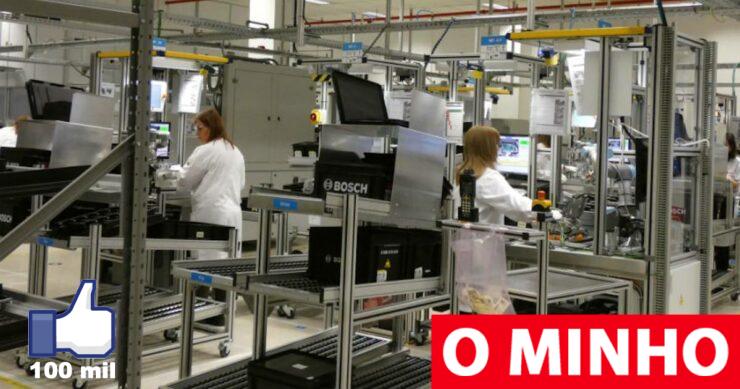The shortage of semiconductors around the world, which is also affecting Portugal, is the result of a combination of different factors, said Lusa, partner at BCG advisory José Ferreira, who believes prices will rise in the short term.
The shortage of semiconductors has already halted production on the bush, in Braga, or from lear company, in Valença, to name a few, as there are many industries in the provinces of Braga and Viana do Castelo that suffer from this condition.
Semiconductors cover a very wide range of things, from the tiny sensor in a car that makes a sound to the processor inside a “smartphone,” among other things.
The global semiconductor supply chain is mainly divided into two points: countries and Europe are “the places where a lot of R&D, circuit design and the entire design component are done”, while production – because it is a business of scale – is concentrated in China (low and medium complexity), South Korea And, in particular, in Taiwan, where the most advanced “chips” are, as explained by the head of the Boston Consulting Group (BCG).
“Taiwan has the important peculiarity” of owning TSMC – Taiwan Semiconductor Manufacturing Company, which is “recognized as a company with 10 years of technological advancement over any semiconductor product,” he added.
In this aspect, he continued, there is a “geopolitical issue related to semiconductors”, as China has a “one China vision, and Taiwan is part of it.” This means that if Beijing invades Taiwan – “although it is unlikely, it is possible” – the United States “will be geographically hostage to a superpower in a very critical region”.
Taiwan is responsible for 92% of the advanced semiconductor production and South Korea is responsible for another 8%.
Regarding the demand for semiconductors, Jose Ferreira said the COVID-19 pandemic was one of the factors that led to the shortage, with increased acquisitions of laptops and consoles and the purchase of smart home devices, among others.
Another factor is “Bitcoins” (cryptocurrencies). “To mine bitcoins, you need processors and with this speculation there has been a tough demand for processors,” he continued.
He noted that “the chips, which were used in electric cars, game consoles, and computers, have started to assemble to do ‘bitcoin mining’ and this is putting pressure on the supply chain.”
In fact, the pressure was so great that some semiconductor controller producers implemented restrictions on their “chips” to prevent them from being used in other processes, he said.
José Ferreira added that the third factor “has to do with an increasing structural demand”, driven by “smart cities”. [cidades inteligentes], The Internet of things [Internet das Coisas]Electric cars, among others.
Finally, demand for semiconductors was also affected by “a purely logistical factor: the supply chain is under pressure from tariff issues and maritime traffic has faced problems due to COVID-19”.
He considered that in the short term, “prices will rise, and cars or ‘smartphones’ will become more expensive,” acknowledging that the price effect due to the imbalance between supply and demand is “likely to be absorbed by the consumer.”
And with the advent of 5G, the pressure on demand will continue.
However, Jose Ferreira hopes that there will be relief from this pressure on demand, that is, because the “bitcoin effect” is more temporary, shipping will return to normal and also due to the recovery of semiconductor production capacity.
On the other hand, the United States created an incentive program – 50 billion dollars – to attract the “chip” industry
He stressed that “because of the geopolitical issue, the United States, in particular, and it is likely that Europe will follow suit, is trying to bring some production capacity into its territory.”
“We are seeing a shortage that combines several factors at the same time, but I think it will be eliminated naturally,” he concluded.

“Wannabe internet buff. Future teen idol. Hardcore zombie guru. Gamer. Avid creator. Entrepreneur. Bacon ninja.”

